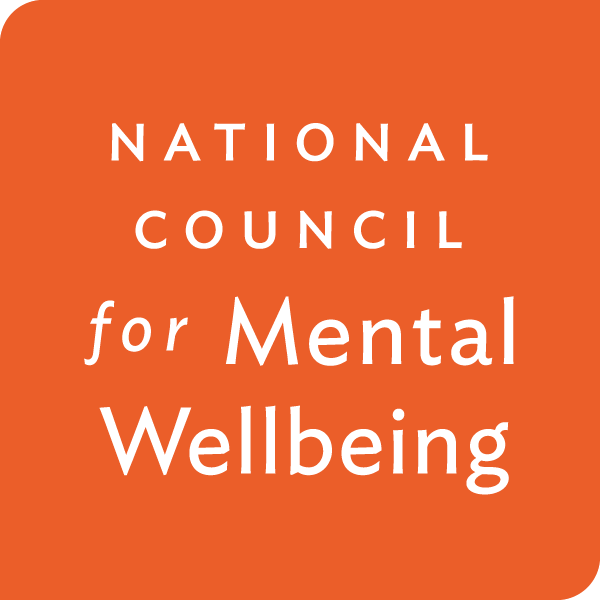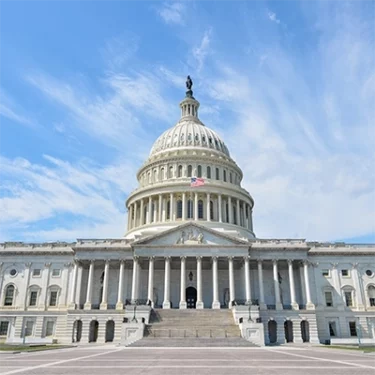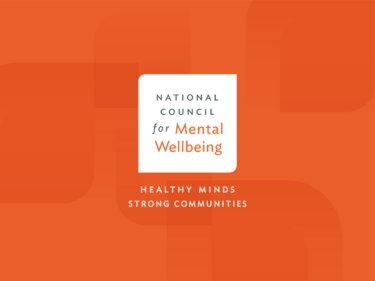Congress Passes FY24 Appropriations “Minibus,” Strengthens Critical Substance Use and Mental Health Care Programs
WASHINGTON, D.C. (March 11, 2024) — The National Council for Mental Wellbeing commends Congress for passing the Consolidated Appropriations Act, 2024 (CAA, 2024), which President Biden signed into law on March 9.
The CAA, 2024 codifies a definition for Certified Community Behavioral Health Clinics (CCBHCs) within Medicaid, along with other provisions, which include:
- Permanently requiring states’ Medicaid plans to cover all medications for opioid use disorders.
- Making permanent the state Medicaid option to cover treatment at a residential or inpatient substance use disorder program with over 16 beds.
- Prohibiting states from terminating Medicaid enrollment for incarcerated individuals.
- Mandating guidance from the Department of Health and Human Services on improving the behavioral health workforce.
“Through expanding coverage for evidence-based SUD medication, eliminating barriers to care based on treatment facility size, and improving access to care for incarcerated people — for whom continuity of care is critical in lowering the risk of overdose — this law will better enable people with a substance use challenge to access lifesaving treatment in their community,” said Chuck Ingoglia, president and CEO of the National Council for Mental Wellbeing.
“CCBHCs have proven successful in expanding their services and tailoring mental health and substance use care to meet the individual needs of their communities. But more people need access to the comprehensive, high-quality care these organizations provide. This law enables states to more swiftly take action to expand access to CCBHCs statewide, while ensuring people living in a CCBHC demonstration state can continue to access care from a CCBHC post-demonstration.
“We applaud Congress for making permanent key programs that increase accessibility of SUD treatment and for expanding access to high quality mental health and substance use care. We look forward to working with Congress, the Biden-Harris administration and state leaders on implementing CAA, 2024.”
The National Council thanks Senate Finance Chair Ron Wyden, D-Ore., and Ranking Member Mike Crapo, R-Idaho, as well as Sens. Debbie Stabenow, D-Mich., and Thom Tillis, R-N.C., for their leadership. The National Council also thanks House Energy and Commerce Committee Chair Cathy McMorris Rodgers, R-Wash., Ranking Member Frank Pallone, D-N.J., E&C Health Subcommittee Chair Brett Guthrie, R-Ky., and Ranking Member Anna Eshoo, D-Calif., as well as Rep. Doris Matsui, D-Calif., and Rep. Larry Bucshon, R-Ind., for introducing H.R. 7545 last week.
About The National Council
Founded in 1969, the National Council for Mental Wellbeing is a membership organization that drives policy and social change on behalf of over 3,400 mental health and substance use treatment organizations and the more than 10 million children, adults and families they serve. We advocate for policies to ensure equitable access to high-quality services. We build the capacity of mental health and substance use treatment organizations. And we promote greater understanding of mental wellbeing as a core component of comprehensive health and health care. Through our Mental Health First Aid (MHFA) program, we have trained more than 4 million people in the U.S. to identify, understand and respond to signs and symptoms of mental health and substance use challenges.
Media Contact
Sophia Majlessi
Media@TheNationalCouncil.org
202-621-1631




